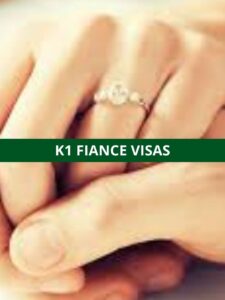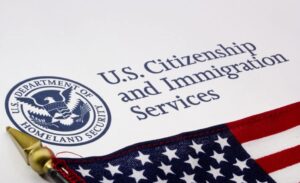Despite the COVID era, K1s seem to be otherwise progressing smoothly. Meeting someone with whom you want to spend your life can be difficult, and you may not always find this person in your home country. Americans who meet their future spouse while traveling abroad may worry that there is no way to bring their fiancée to the United States. Luckily, the K-1 fiancé visa is here for you.
How does the visa work?

The K-1 visa allows for a fiancé(e) of a United States citizen to enter the U.S. for a maximum of ninety days. Any minor children of the fiancé are also permitted to accompany the fiancé, with a K-2 visa. The purpose of the K-1 fiancé visa is to allow the fiancé and U.S. residents to marry. If the marriage doesn’t happen within the ninety days, the fiancé must return to his or her home country, or risk government action that may make it impossible to return to the United States at a future date.
What are the requirements for the application?
In order to apply for a K-1 fiancé visa, you must provide proof of the following:
- You must prove you intend to marry within ninety days of the fiancé’s entry.
- You must prove the marriage will be legal.
- You must prove you’ve met the fiancé within two years of filing the petition. This requirement may be waived in circumstances where an in-person meeting was impossible, due to customs or social practices in the foreign culture.
- You must provide a criminal record if any. Your petition may be denied if you’ve been convicted of a criminal offense against a minor.
- You must demonstrate that your fiancé is financially self-sufficient (with a job already lined up), or that you will be able to financially support both of you.
- You must prove your fiancé is allowed to enter the United States. He or she may be inadmissible if he or she has a criminal record, has lied during the K-1 petitioning process, or has a previous history of staying illegally in the U.S. If he or she is inadmissible, a special waiver may be needed to acquire a K-1 fiancé visa.
Only a United States citizen may file for a K-1 fiancé visa. This means you, the U.S. citizen, must apply for the visa on behalf of your fiancé who wishes to immigrate. More about eligibility for a fiancé visa.
Because a K-1 fiancé visa expires after ninety days, steps must be taken by the fiancé to apply for adjustment of status to be considered a Lawful Permanent Resident (LPR) within ninety days. Once the fiancé becomes an LPR, he or she may apply for green card status. If the approval of LPR status takes longer than the ninety days permitted by the K-1 fiancé visa, the fiancé is still allowed to remain in the United States until the approval process is complete.
How can an immigration lawyer help me?
Filing for a K-1 fiancé visa can be time-consuming and tedious. Your petition must be approved by many governmental departments. It requires an enormous amount of paperwork, leaving plenty of room for error that can result in the denial or delay of your visa. We advise you to work with your choice of experienced K-1 fiancé visa lawyer to expedite the process and ensure you and your future spouse can be together without hassle as quickly as possible.
When choosing an immigration attorney to pursue a K-1 fiancé visa, be careful before hiring a consulting service. A visa consultant can fill out your paperwork but cannot provide you with professional legal advice concerning immigration law. Consultants are vulnerable to errors which can be devastating to your case. Often, visa consultants cost as much or more as fiancé visa lawyers with specialized skills, yet they lack the in-depth knowledge of immigration law that is required to navigate the field of fiancée visas with adequate success and efficiency.
Have more questions, or ready to get started? Please fill out the form on the left

 citizen you must file Form I-129F: Petition for Alien Fiancé(e) while within the US. You cannot file with a US Embassy or Consulate while in another country. You must file this form with the USCIS Service Center that serves your area. Your fiancé visa lawyer will guide you through this process, and will complete the vast majority of required paperwork for you.
citizen you must file Form I-129F: Petition for Alien Fiancé(e) while within the US. You cannot file with a US Embassy or Consulate while in another country. You must file this form with the USCIS Service Center that serves your area. Your fiancé visa lawyer will guide you through this process, and will complete the vast majority of required paperwork for you.










